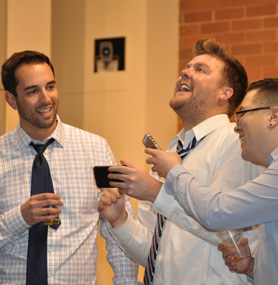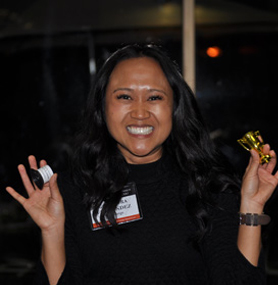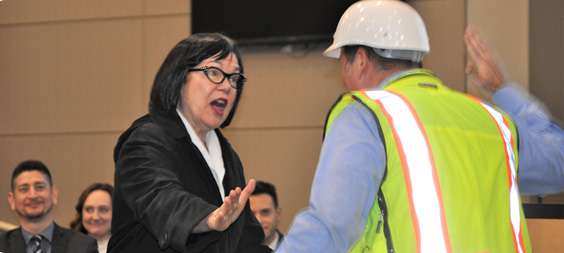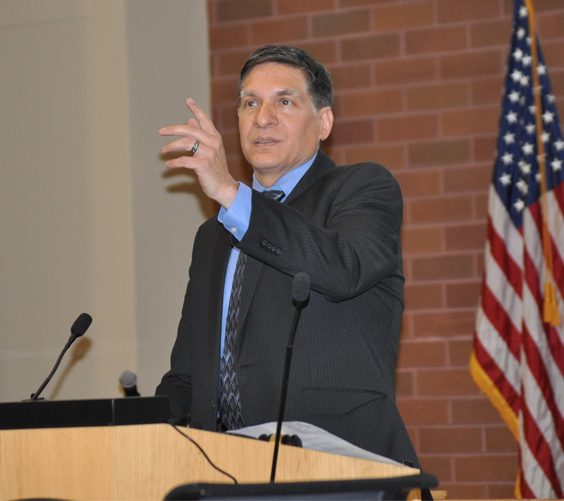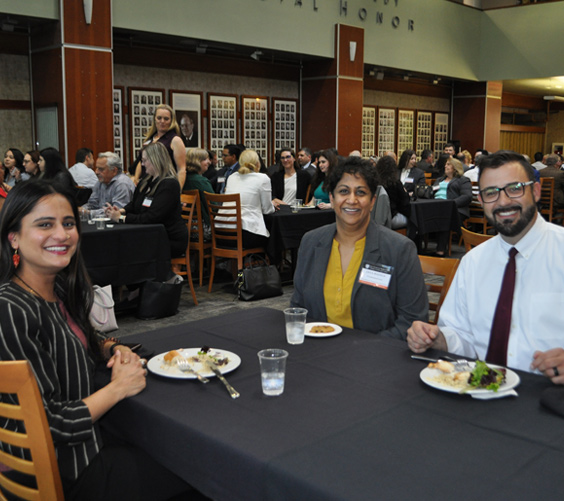How Our Program Works
Our members are assigned to eight teams, one for each of the monthly dinner programs. Each team is led by a judicial officer and includes a cross-section of the membership. Generally, there are two McGeorge law students per team.
Each team develops an original skit designed to raise issues involving civility, ethics and professionalism. The team performs the skit for the Inn membership and a moderated discussion follows in which members share their views and experiences.
An Executive Committee oversees the Inn. We also have emeritus members who attend our programs and add to the culture of our Inn.
The Skits
Skits are distinctive feature of the Kennedy Inn. Each of our eight teams develops an original script and then performs it, costumes and all, to set the stage for group discussion. Usually, skits consist of two 10-15 minute acts, each followed by a discussion period.
Each team has about a dozen members and is led by a judicial officer. Initially, members meet to get to know each other and brainstorm topic ideas. For example, a program may focus on the boundaries of zealous advocacy, elimination of bias, or ethical issues raised by artificial intelligence.
One or more scriptwriters then get to work, creating roles and dialogue. Members gather to rehearse the skits, which may include a song or video component. Members create a handout of background materials pertinent to the program. Meanwhile, the team leader works on questions for use during the moderated discussion, which qualifies for MCLE credit.
Enthusiasm, camaraderie and humor fuel our teams, not acting experience or talent. Each fall we acknowledge the prior year’s performers through our Hammy Awards Program where our leading actors and discussion participants are duly honored with three-inch plastic trophies.
The American Inns of Court annually selects top programs for recognition based on their substance, quality and creativity, and the Kennedy Inn is a frequent winner of national awards.
While we appreciate such recognition, our teams are all about building professional relationships and providing a springboard for robust discussion about timely and timeless issues of importance to our system of justice.

